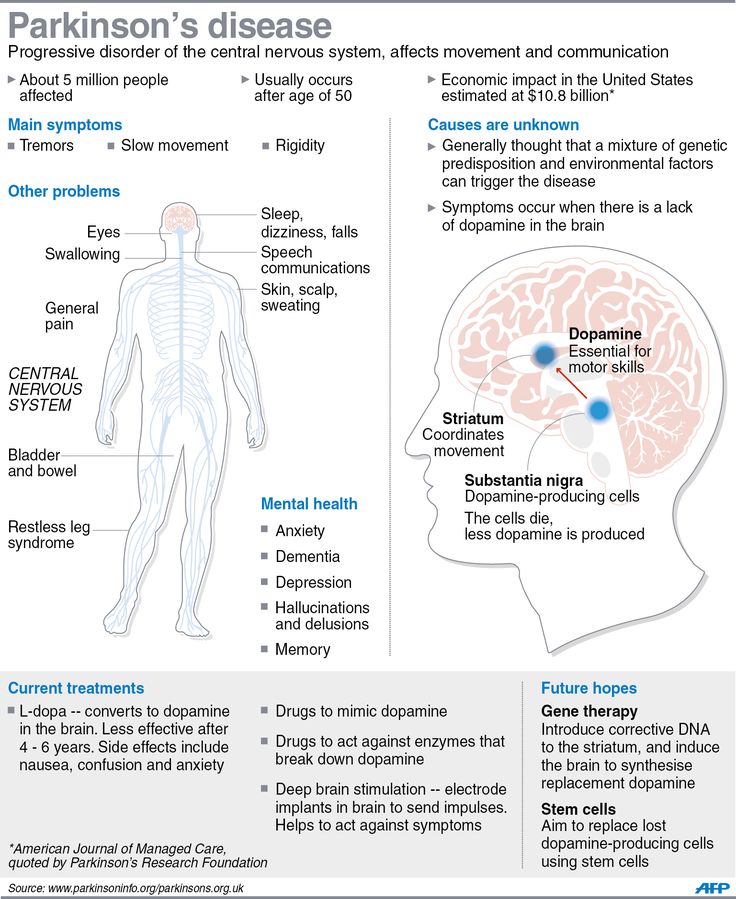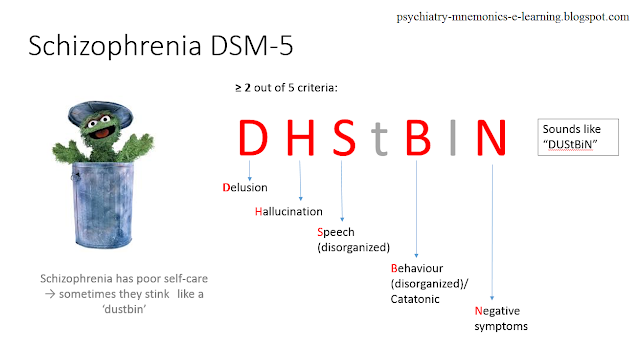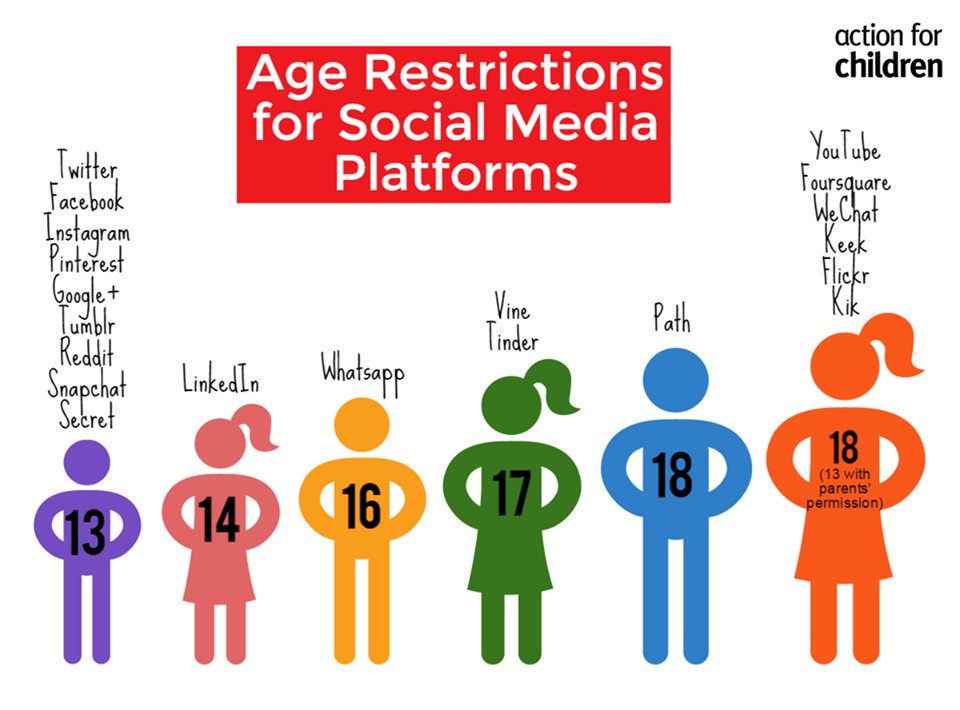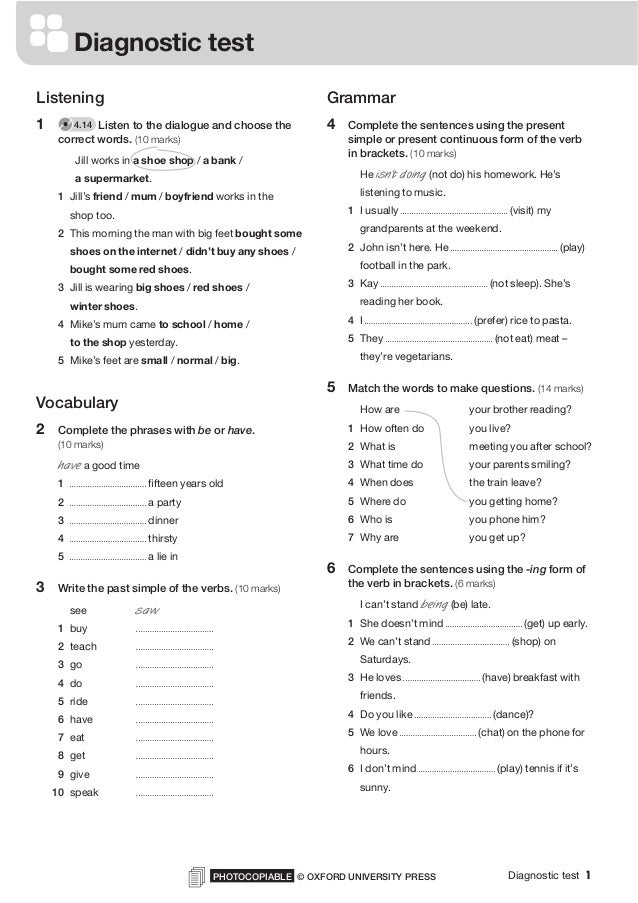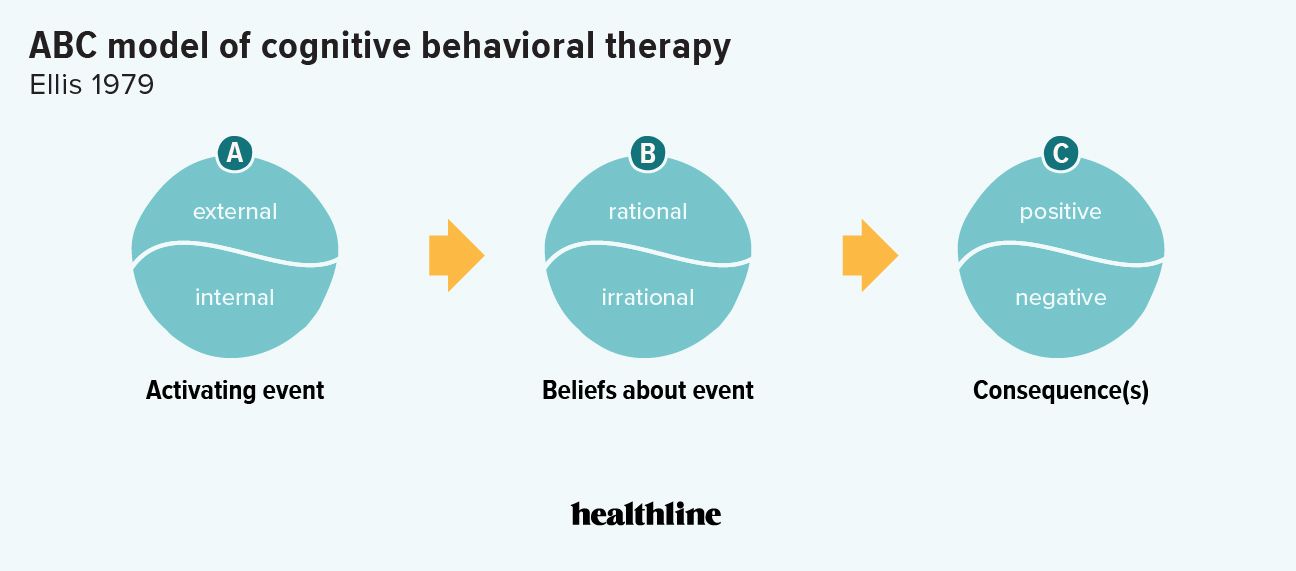Why am i so sensitive when someone yells at me
Why Am I So Sensitive When Someone Yells At Me? (7 Tips)
In this brief guide, we will discuss the question many sentimental people may ask themselves, which is “Why am I so sensitive when someone yells at me?”
Family Counseling
Please enable JavaScript
Family Counseling
Why Am I So Sensitive When Someone Yells At Me?
There are many reasons why you may cry when someone yells at you, one of which may be the simple fact that many people perceive being yelled at as a threatening stimulus, which merits strong emotion like heightened sensitivity, akin to facing a predator in a jungle.
In other cases, you may be so sensitive when someone yells at you because you are an emotional person in general and you perceive someone yelling at you as them abandoning you or finding faults with you or just generally disapproving of you.
Another reason for your sensitivity when someone yells at you may just be that you are a Highly Sensitive Person (HSP), which is a relatively new concept and refers to someone who is prone to feeling emotions in a slightly different manner compared to others and someone that responds more openly to strong feelings as well.
If you are wondering whether this is a real thing, you shouldn’t, because there is documented psychological literature that explores the phenomenon of being a Highly Sensitive Person, and this concept was put forth first by prominent writer and researcher Elaine Aron, in her book by the name of the Highly Sensitive Person.
What is a highly sensitive person then? And does this concept explain the question that so-called oversensitive people always seem to be asking themselves, which is “why am I so sensitive when someone yells at me? Let’s explore this further.
The Highly Sensitive person
The highly sensitive person, or HSP, is simply someone that is more attuned to the outside world, especially threats or predatory stimulus like someone yelling at them, and may have a more extreme response to such things as well.
An HSP may find crying a natural response to sadness, happiness, or being overwhelmed and they may cry more easily than those around them.
One may find the highly sensitive person holding back tears anywhere there is a lot of stimuli.
These individuals may often feel bad about the amount of crying they do or maybe even feel ashamed, but the truth is, they don’t need to be, because research suggests that the Highly Sensitive Person actually processes stimulus differently than other people, and the brain activity in these individuals is stronger than in any other person.
A study done by Acevedo et al employed the test for Highly Sensitive Persons and measured the relation of the traits they found on the test with those measured by an fMRI.
They had 18 participants, with 10 females and 8 males, who viewed photos of their romantic partners and of strangers displaying positive, negative, or neutral facial expressions.
They were scanned one year apart, and 13 of the 18 participants were scanned twice, and they also took the highly sensitive person test.
The study concluded that “As predicted, for partner images and for happy facial photos, HSP scores were associated with stronger activation of brain regions
involved in awareness, empathy, and self-other processing. These results provide
These results provide
evidence that awareness and responsiveness are fundamental features of SPS,
and show how the brain may mediate these traits.”
In addition, according to the Highly sensitive person website by the proponent of this theory, there are some traits of the highly sensitive person that are common to most of these individuals, which she helpfully frames in the context of questions the person may compare themselves to like so:
- “Are you easily overwhelmed by such things as bright lights, strong smells, coarse fabrics, or sirens nearby?
- Do you get rattled when you have a lot to do in a short amount of time?
- Do you make a point of avoiding violent movies and TV shows?
- Do you need to withdraw during busy days, into bed, or a darkened room or some other place where you can have privacy and relief from the situation?
- Do you make it a high priority to arrange your life to avoid upsetting or overwhelming situations?
- Do you notice or enjoy delicate or fine scents, tastes, sounds, or works of art?
- Do you have a rich and complex inner life?
- When you were a child, did your parents or teachers see you as sensitive or shy?”
According to the same website, you can also take the Highly Sensitive Person test online, here.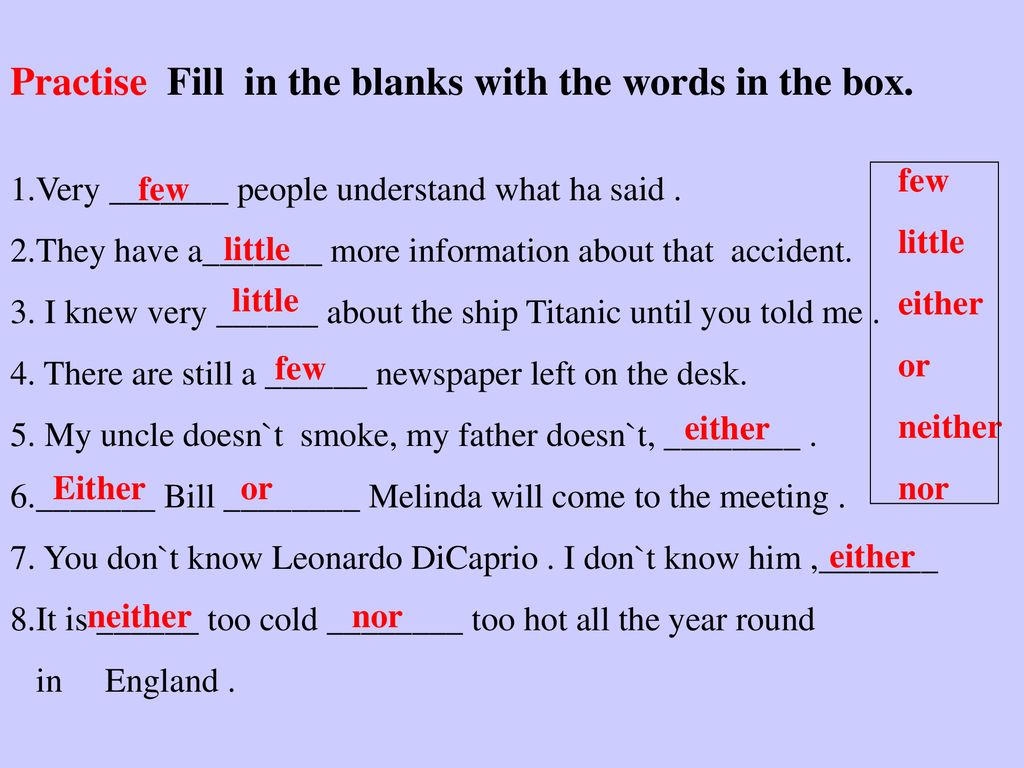
The Highly Sensitive Person theory explains very well why someone people are more prone to sensitivity when someone yells at them, and it may be worth it to find out why through this test and through exploring this concept further.
Psychological effects of being yelled at
Given below are some of the main psychological effects of being yelled:
- Possible Depression
- A condition or anxiety or feeling anxious all the time
- A constant state of stress and fight or flight response in the body
- Long term effects like personality problems or physical issues like gastric problems
- Lack of communication between the person yelling and the person being yelled at
- Breaking down of a relationship and not being able to fix it properly
- Anger issues in both the people
- Chronic physical pain as a result of mental anguish
It is not even necessary that the psychological effects of being yelled at show up immediately in the form of crying or yelling back, they may also make their presence known in the form of long-term consequences, but they will always show up.
The psychological effects of being yelled at are only one reason to not engage in this maladaptive manner of communicating, just the fact that there are so many other side effects of being yelled at or yelling with someone, like in the case of parents who yell at their children, for instance, the NAMI talks about how it affects their relationship:
“Attachment and infant-mother research confirms what we all intuitively know: Humans do better when they feel safe and consistently loved, which means, among other things, being treated with respect. What is news to many of us is that we are born with fully matured, hard-wired, core emotions like sadness, fear, and anger. And when fear, for example, is repeatedly triggered by a harsh environment, like one where there is a lot of yelling, automatic physical and emotional reactions occur that cause traumatic stress to a child. The stress in their little brains and bodies increases from anything that makes them feel attacked, including loud voices, angry voices, angry eyes, dismissive gestures, and more. ”
”
Why Do I Cry When Someone Yells at Me?
People cry when someone yells at them usually when they are sensitive, to begin with, or because some people perceive yelling as a sign of danger and this causes them to get emotional as a coping mechanism, or something they unintentionally employ because their brain feels that it could get the other person to stop yelling that way.
You may also cry when someone yells at you because sometimes it causes a sense of helplessness when someone yells at you, and a feeling that you are not in control of the situation at all and might be vulnerable.
Other reasons include misperceiving a harsh tone of voice as someone yelling at you, which is possible if someone is on the spectrum of autism or autism-like problems like Aspergers.
If you’re facing this, it may be a good idea to seek the help of a therapist or other mental health professional. You can find a therapist at BetterHelp who can help you learn how to cope and address it.
According to Dr. Marcia Eckerd, “Most experienced parents and teachers are well aware that children with NLD and Asperger’s don’t pick up on nonverbal cues. Most often the focus (and intervention) is on cues having to do with facial expression, body language, and gesture. What many don’t realize is that tone of voice is also a nonverbal cue that is often misinterpreted.”
“Another critical aspect of tone is understanding inferences and sarcasm. One could say “Get out of here” in a way that is unfriendly, or one could say the same words with a tone that is teasing, meaning “I can’t believe that.” Children (and adults) who miss that tone can’t tell if someone is teasing, and again, they can assume a negative intention. Or, frequently, they’re mystified when others laugh because they don’t get the humor.”
“There are ways of helping. A Speech and Language Therapist can work with someone, helping them listen to and identify different intonations. Role-playing saying the same word with different feelings is helpful. Volume can be practiced by experiencing oneself or someone else goes through a variety of different volumes, sometimes at different distances.”
Volume can be practiced by experiencing oneself or someone else goes through a variety of different volumes, sometimes at different distances.”
How to stop someone from yelling at you?
While you may not be able to stop someone from yelling at you unless you have an honest conversation with them, you may be able to do something about not letting someone yelling at you make you feel so horrible:
- Think about something that makes you happy, and try to get away from that person
- Drink water
- Look away and try not to focus on that person
- Try meditation
- Try to say to the person, “I understand that you are angry, but I cannot talk to you if you are going to raise your voice, let’s discuss it when you are feeling less angry.”
- If you are suffering from abuse at home, try a helpline like Victim Connect.
Conclusion
In this brief guide, we discussed the question many sentimental people may ask themselves, which is “Why am I so sensitive when someone yells at me?”. Please feel free to reach out to us with any questions or comments you have.
Please feel free to reach out to us with any questions or comments you have.
Frequently Asked Questions (FAQs): Why Am I So Sensitive When Someone Yells At Me?
Why do I cry when someone yells at me?
You may cry when someone yells at you because you may see the stimulus as frightening, overwhelming, or unpleasant.
When someone yells at you it may make you sad because you might feel affronted, and some people also cry when they are angry.
Why do I get scared when someone yells at me?
You may get scared when someone yells at you because someone yelled a lot as a child and you might have learned to expect some kind of punishment after yelling now.
It may also be that you are scared when someone yells at you because you associate yelling to something negative, that may be a part of your suppressed memories that trigger that fear.
How do you react when someone shouts at you anger?
Here are some ways to react when someone shouts at you in anger:
Try to stay calm and don’t yell back
Take a mental step back.
Don’t agree with the person that is yelling at you
Calmly address the person who is shouting at you
Try to take a break from the person
Citations
https://www.semanticscholar.org/author/E.-Aron/46378507
Do You Cry Easily? You Might Be a Highly Sensitive Person
https://blogs.psychcentral.com/aspergers-nld/2017/05/are-you-yelling-aspergers-nld-and-tone/
Your feedback helps us improve the quality of these articles.
Why Am I So Sensitive When Someone Yells At Me?
No Comments on Why Am I So Sensitive When Someone Yells At Me?Posted in Articles By SamuelPosted on
Why Am I So Sensitive When Someone Yells At Me? – ‘My boss yelled at me. My parents don’t get me. My friends are so deceiving and negative!’ God, my whole life feels like a mess! How often do we feel these emotions? Speaking of the current era, more than half of the population on our planet feels the same thing. Did we ever ponder the fact that what does this constant feeling of being vulnerable get us in return?
Did we ever ponder the fact that what does this constant feeling of being vulnerable get us in return?
Being sensitive when someone yells or shouts at you is one way the mind is signaling you that you are stressed. Usually, crying, shouting, and feeling vulnerable when someone yells at us signifies a weaker state of mind. What causes this weaker state of mind? Let’s find out the reasons that are leading to a sensitive state of your mind.
Susceptible To Negative Responses!How often have you been in situations where you start crying out of panic? If your answer is many times then, it looks like you have become highly sensitive. Or you have a vulnerable personality. In both cases, the person at a loss is you. Often we have defenses like if we start crying and give in to the situations, maybe the things will start working out for us. But does that happen? Practically speaking, this kind of attitude will make you feel miserable.
It is because you start relying on emotions like sadness, crying, isolation, unhappiness, etc. These emotions will keep you in the lowest energy state because these emotions are highly negative and at the lowest frequency. What do you think are the main causes for having such a susceptible attitude? Is it any good for you? No! Then what are the dangers of this personality? How to deal with it? Keep reading to know more.
These emotions will keep you in the lowest energy state because these emotions are highly negative and at the lowest frequency. What do you think are the main causes for having such a susceptible attitude? Is it any good for you? No! Then what are the dangers of this personality? How to deal with it? Keep reading to know more.
The reasons why you might be having a feeble personality are as follows:
Jeff Bezos Career Advice
Please enable JavaScript
Jeff Bezos Career Advice
- It’s in your roots: Everyone born on this planet has a specific attitude and personality. Not everyone on earth can share the same attitude or lifestyle. Hence, different people have different personalities. Some prefer loud surroundings, whereas others may like it quiet. Some are extroverts, and others may be introverts. Having a sensitive attitude can be your root personality.
 It is not at all a problem to have a feeble attitude unless it starts harming you.
It is not at all a problem to have a feeble attitude unless it starts harming you. - Genetics: We inherit a lot from our parents. Personality and attitude are one of those things. If you have mom and dad, who are equally shy and introverted as you, then folks, you surely have inherited some shy genes. Well, how cute is that!;) But, sometimes, a fragile personality might break you from within. Feeble people are always cute, and their smiles are pure. But it’s hard for pure people to survive in a world full of harsh and rude monsters.
- Obese lifestyle: Obesity is a serious condition. Not only it leads to internal disorders like hypertension and diabetes. But it also results in a vulnerable personality. Having an obese lifestyle makes you lethargic and ultimately wants you to delay the necessary tasks. Once you start delaying your stuff, you are surely going to lose your confidence and self-esteem. This will lead to delayed submissions and lethargic performance.
 Apparently, you will end up attracting yellings and scoldings.
Apparently, you will end up attracting yellings and scoldings. - Stress: Stress is the only thing we wish we could eliminate from our lives. If taken positively, it can benefit you. But if take in on a severe level, then it surely leads to mental health disorders. Stress disorders like depression, anxiety, headaches are often common in people with weak personalities. Being stressed for longer durations leads to damage to brain cells. This results in reduced productivity and an anxious psyche. Stress disorders affect overall appearance as well. It may lead to dark circles and acne. One of the most hated circumstances of stress disorders is insomnia. Sleepless nights then lead to headaches and gaining weight uncontrollably.
- Hormones: Your hormones play a bigger role in forming your personality. Sometimes it isn’t your fault for being a highly sensitive person in the room. It can be because of your hormones. Disorders like PCOS, PCOD, hyperthyroidism, hypothyroidism, diabetes, hypertension can lead to an easily provoked persona.
 Every small change may irritate you. Your anger levels might be on a constant surge. If something doesn’t go your way, you might get irritated. On top of it, if someone yells at you, you might lose your calm and start crying. Even if you understand the situation, you will still get easily enraged by some or the other thing. Women may experience such sudden changes during the menopause stage.
Every small change may irritate you. Your anger levels might be on a constant surge. If something doesn’t go your way, you might get irritated. On top of it, if someone yells at you, you might lose your calm and start crying. Even if you understand the situation, you will still get easily enraged by some or the other thing. Women may experience such sudden changes during the menopause stage. - Trauma: Some life experiences may change you within. They may affect you right up to your core and change you forever. Sometimes it’s for good, but not always. Not every heartbreak can set your heart free. Some may break your heart into pieces and leave grave marks on your soul. Some traumatic experiences can give you a feeling of guilt. Thus, making you a weaker version of yourself. Other traumas may lead you into a world of fear where you lose your confidence. All of these traumatic incidents may leave a mark on you, due to which you have become what you didn’t intend to be.
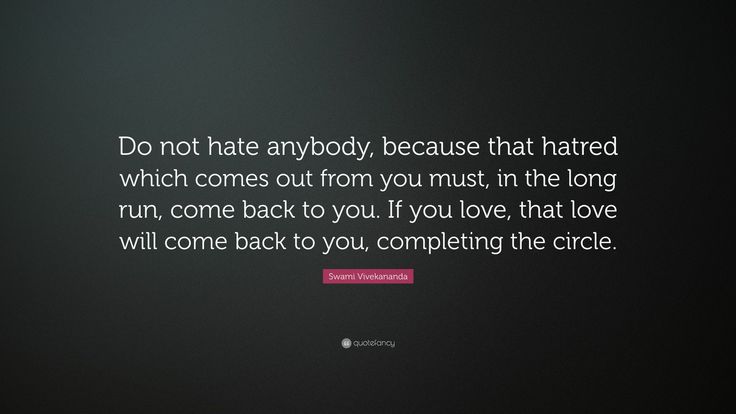
A vulnerable attitude is the most harmful one. This is because it leads to severe problems that affect our mental health to great levels. Some of the critical ways a sensitive personality may harm you internally and mentally are listed below.
- Anxiety
According to science, anxiety refers to a stressful state of mind. This term might look funny, but it has some grave effects on mental health. Anxiety can be developed from any feeling. Be it yelling or heartbreak or even the feeling of losing. Anxiety has many causes, but the most prevalent one is a sensitive and susceptible attitude. If you have an attitude where you are constantly affected by others, then there are chances, shortly, you might become anxious. Sensitive people often start judging themselves by the opinions of society. This is what makes them to the next level of anxiety. Prolonged anxiety eventually leads to cases of severe depression.
- Depression
Depression is a mental disorder caused due to several factors like anxiety, stress, abuse (mental, physical, emotional), weak personality, etc. Depression is a long-term disorder. It slowly kills you from within. In the most severe cases, depression takes away the life energy and makes the patient feel useless and with no purpose. If you own a weak and tender attitude wherein you can’t stand for yourselves, then chances are you might give in to depression. However, if you possess a tender personality but you know your worth and stand for yourselves, then stay relaxed as depression can never harm you.
- Hatred
Aggression is the ultimate feeling you get after subsequent yellings or constant negativity in your surroundings. When you share a sensitive personality, you start to hide your feelings within yourself. You start suppressing your emotions. You keep things in your mind and your words unspoken. These hidden feelings and suppressed emotions may eventually turn into hate and anger. Then time will come you will suffer from a sudden outburst of anger at wrong situations. Some may even experience agitation in public and start shouting out of nowhere. At the same time, severe cases will lead the person to hate almost everyone.
These hidden feelings and suppressed emotions may eventually turn into hate and anger. Then time will come you will suffer from a sudden outburst of anger at wrong situations. Some may even experience agitation in public and start shouting out of nowhere. At the same time, severe cases will lead the person to hate almost everyone.
- Health Issues
Suppressed feelings and emotions start giving you stress from within. This eventually leads to sleep disorders, eating disorders, heart problems, obesity, hypertension, hyperthyroidism, and many other conditions. All of these lead to a life of suffering. Why not instead take a stand for your emotions and not get into the mess of these disorders?
How To Overcome Anxiety And Related Factors?Anxiety is a feeling that needs to be monitored and controlled. It can be done by several healthy methods some of which are:
- Relax: Amidst all the hustle and bustle going around in our lives.
 We often forget about relaxing. We are constantly busy fighting for a promotion or struggling for a new job. Other times you might be busy due to your regular and boring routines. All of these exhausts you both mentally and physically as well. Going for a trip or participating in other recreational activities might help you get out of that sensitive zone of yours. Go shopping, meet up with an old friend. Talk about all your worries and let yourself free. You should keep your mind mentally active, or else it will affect you in every way.
We often forget about relaxing. We are constantly busy fighting for a promotion or struggling for a new job. Other times you might be busy due to your regular and boring routines. All of these exhausts you both mentally and physically as well. Going for a trip or participating in other recreational activities might help you get out of that sensitive zone of yours. Go shopping, meet up with an old friend. Talk about all your worries and let yourself free. You should keep your mind mentally active, or else it will affect you in every way. - Eat clean: We all know the benefits of clean eating, yet we somehow constantly ignore it. Well, when I say eat clean, I don’t want you to get started with those keto-diets and balanced diets or intermittent fasts! All I want from you is to keep count of your calories. Stay away from foods that trigger your acidity levels. Drink lots of water. Fruits infused water or detox water would be great as well. An equal number of proteins should accompany the number of calories you eat.
 Add veggies, fruits, nuts, and dry fruits to your snack list. Once you start adopting these small eating habits, you will notice a change in yourself from within. Your skin will start glowing, and you will feel happy from within. Also, you will be less lethargic and more energetic. You will gain focus and, in turn, perform better always.
Add veggies, fruits, nuts, and dry fruits to your snack list. Once you start adopting these small eating habits, you will notice a change in yourself from within. Your skin will start glowing, and you will feel happy from within. Also, you will be less lethargic and more energetic. You will gain focus and, in turn, perform better always. - Meditate: Meditation is the key to building the best version of yourself. Meditation not only helps you to soothe your mind. But it also helps to visualize your problems and the solutions to them. Meditation allows you to enter into a new dimension wherein you can work upon your feelings and emotions. Meditation is the most powerful tool to manifest your dreams. Simple affirmations like ‘I am confident. I fear no one. I attract positivity.’ during meditation will help you gain confidence in no time. This works because meditation affects your subconscious mind directly. It helps to channelize your thoughts in a better direction.

- Read good books: Reading is a culture that needs to be revived. When I say reading, I don’t mean reading those comics online or stories published online.
Reading needs to be done from books. Self-help books, motivational books, spiritual books can be and must be read to create the best version of yourself. Books like The Secret, The power of positive thinking, the subtle art of not giving a f*ck, how to win friends and influence people are a must-read.
- Breathing exercises: This might look and sound insane. Like why will a breathing exercise help you remain calm? But let me tell you, this is one of the proven ways to reduce anxiety instantly. When you are anxious, the body releases adrenaline, resulting in fast breathing, leading to even more stress. To avoid such a situation, keep control of your breathing. Take a deep inhale and then exhale slowly. Do this 5-6 times, and you will feel a lot better. Breathing slowly helps to reduce the fastened heartbeats and lowers the adrenaline in your blood.
 Therefore, it makes your anxiety go away quickly. After all, controlling the mind is difficult. But controlling our breathing is easy! So, why not give this trick a try?
Therefore, it makes your anxiety go away quickly. After all, controlling the mind is difficult. But controlling our breathing is easy! So, why not give this trick a try? - Sweat it out: If your anxiety makes you aggressive, put that energy into a workout session. Instead of yelling and crying and wasting that energy. Why not work it out? Go for jogging, learn swimming, start dancing, learn martial arts. Hurt yourself for good instead of yelling to attract even worse. Working out has scientifically proven to reduce mental disorders and mood swings. When you start sweating out, your brain gets decluttered from negative emotions that have been pulling you down.
- No to alcohol, caffeine, and junk food: Say no to all sorts of alcoholic beverages and drinks. A strict no to smoking and a no to junk food as well. These things slowly incorporate into our body and produce harmful chemicals that lead to diseases like cancer. Subsequent encounters with these toxic substances will kill you slowly from within.
 Also, leading to disrupted mental health.
Also, leading to disrupted mental health.
Mark Manson, famous author of the book, The Subtle Art Of Not Giving A F*ck truly said, “Self-improvement is prioritizing better values. Choosing better things to give a f*ck about. Because when you give better f*cks you get better problems. And when you get better problems, you get a better life”. This is exactly what needs to be done and what we don’t do! We often know the answers to our problems, but we are either too scared or too lazy to deal with them. Then ultimately, the problem becomes severe, and we get some serious yellings. To avoid this constant cycle of receiving yelling and breaking down into tears. We need to prioritize values that are in favor of us. We need to become more disciplined. We need more dedication and passion. We need to embrace our faults and change them from within. After all, we have been running from our demons throughout the town. Little do we know they reside within our minds and not on those streets.
Little do we know they reside within our minds and not on those streets.
- How to not cry when someone yells at us?
The best way to prevent yourself from crying when someone yells at you is to take a minute. Tell the other person you need a minute to get yourself together. Relax for a minute. Practice breathing exercises. Drink water. Think about the situation and your role in it. Gather your pieces together and stand strong.
- Why am I scared of getting yelled at?
If scoldings or yellings easily provoke you, it signifies an infirm personality. If other’s opinions easily shake you for you and the way they yell at you. It means you are developing anxiety and stressful remarks against the feeling of being yelled at. This feeling stays in your subconscious mind leading to anxious and scared behavior.
- How to handle a situation when someone yells at you?
Try to remain calm and silent when someone is yelling at you. Let the other person speak first. If he/she is deliberately setting a trap for you, then they’ll surely slip some beans while yelling at you. Get those terms and then speak up. If someone is seriously disappointed in your work, then allow them to speak and try to remain calm.
Let the other person speak first. If he/she is deliberately setting a trap for you, then they’ll surely slip some beans while yelling at you. Get those terms and then speak up. If someone is seriously disappointed in your work, then allow them to speak and try to remain calm.
- How to stay calm when someone yells at me?
Try breathing exercises. Having control over your breathing distracts the mind from the situation. This, in turn, will make you calm. Drink some water. Hydrating yourself will prevent you from being aggressive and taking things to a bigger level of mess. Get some air, relax yourselves. Go for a walk. Talk to a better person. Discuss things with your colleagues.
Also read Why is self representation important in the corporate world?
What to do if you are too sensitive. And this is noticeable
Heightened emotionality is no longer a sign of weakness - it is a feature of the psyche. The existence of highly sensitive people has been scientifically proven. In a world where more and more people cannot cope with stress, American psychologists are closely studying those who are especially prone to worry about any reason. "Lifestyle" offers to join them.
In a world where more and more people cannot cope with stress, American psychologists are closely studying those who are especially prone to worry about any reason. "Lifestyle" offers to join them.
If you can't stand bright lights and turmoil around you, you can't watch horror movies, and after watching the news about an earthquake or a military conflict, you begin to cry out of pity for the victims, you are a highly sensitive person. According to the author of the term Elaine N. Aron, there are about 20% of people like you in the world. This means that it's time to stop hiding your feelings and no longer be ashamed of crying in the movies.
In today's Western world, it's a shame to be a weakling — and that's why we have to hide our feelings, constantly keep in good shape, pretend that we can live without lunch and sleep and work 12 hours a day, otherwise our colleagues will look askance at us , and the authorities - to make jokes about us.
In our country, it is not customary to be capricious, and that is why we are forced to agree to the conditions that we have, to work in a basement or open space, under the wind of an air conditioner, under the harsh light of fluorescent lamps and under the cries of colleagues from neighboring departments.
close
100%
Are we suffering from all this? Yes, we suffer. In general, we suffer from a lot of things: we can’t stand the feeling of hunger, we can’t watch films about the war, we don’t wear woolen clothes because they prick, we tear off the tags from T-shirts because they get in the way. We cannot work when it is cold, hungry or noisy, we react sharply to criticism and take any comments personally, we catch changes in the mood of others. It remains to say who we are.
We are highly sensitive people. Do not rush to laugh and call us sissies - and not only because it is very offensive to us.
You may also be one fifth of the world's population, which is characterized by a particularly sensitive processing of sensory information. Then you are one of us.
Perhaps you, too, were forbidden to watch the news program as a child, because they show war and starving children in Africa? Maybe you were dying of shame when a geographer slapped you a deuce once in your life? Maybe they hated running and, in general, any form of competition, when everyone is looking at you, and you run no more than a three? Maybe at school it was a real torment for you to raise your hand in class, even if you knew exactly the right answer? Maybe. Or maybe you have other examples from your childhood that will help you to say that you were a highly sensitive child and probably grew up to be a highly sensitive adult as well.
Or maybe you have other examples from your childhood that will help you to say that you were a highly sensitive child and probably grew up to be a highly sensitive adult as well.
The term "highly sensitive person" was first used in its current sense by Dr. Elaine Aron, a scientist and author of The Highly Sensitive Person, published in the United States in 1997. The hypothesis that high sensitivity to external stimuli is a feature inherent in about 20% of the inhabitants of the Earth was put forward by a psychologist twenty years ago.
However, the real interest in this idea has awakened among the public only now, when it became clear that more and more people can not cope with stress.
And I woke up just in time: for twenty years, Dr. Aron and her colleagues have done a lot of research that helped to understand what processes occur in the brain of a highly sensitive person, and to conclude that this feature is innate: certain parts of the brain of such a person react to external stimuli sharper than other, less sensitive people.
And not only negative ones, but also positive ones too. Yes, highly sensitive people feel acute discomfort in awkward situations. But brighter experience the pleasure of contemplating objects of art and views of nature, listening to music, communicating with pleasant people.
How to know that you are a highly sensitive person
close
100%
1. You have deep feelings
One of the main characteristics of highly sensitive people is the ability to deeply feel what is happening around. They have developed intuition, which allows them to be more perceptive than their less sensitive comrades.
2. You react more emotionally than others
Highly sensitive people experience more intense emotions and are often infected by the emotions of others. These are not necessarily close people, they can easily pick up a bad mood from a friend or take care of a colleague's problems. This makes them hate delivering bad news or making unpopular decisions – they worry about how others will react to it.
3. You are often told: “Don't take it personally.”
Sensitive people are treated differently in different cultures: if in the West emotionality is a manifestation of weakness, then in the East everything is not so simple.
Dr. Ted Zeff, author of The Highly Sensitive Person's Survival Guide, states from his research that in India and Thailand sensitive men are very rarely teased, while in North In America, men with a fine mental organization are often the objects of ridicule.
4. You prefer to exercise alone
Highly sensitive people hate team sports, according to Dr. Zeff. And our experience confirms this: such people like cycling, swimming or walking, but playing football or basketball causes them to panic.
However, there are exceptions: if such a person is lucky with smart and understanding parents, he may not be afraid to show himself in a team.
5. You find it difficult to make elementary decisions
Highly sensitive people are attentive to the details of the situation and the subtleties of circumstances. From this, they try to take everything into account and fall into a stupor, because there is too much of this.
From this, they try to take everything into account and fall into a stupor, because there is too much of this.
Even the task of choosing an ice cream can confuse them. However, there is good news: having once understood how to behave in a certain situation, in similar conditions in the future, such a person, without getting lost, will immediately do the right thing.
6. You get upset when you make a mistake
Mistakes upset everyone, but highly sensitive people - especially: because of annoying little things and oversights that others have forgotten to even think about, they can suffer for weeks, imagining that they still remember the mistake.
7. You are an introvert
But there are exceptions: according to Dr. Aron, 30% of highly sensitive individuals are extroverts. This happens when a person grows up in a closed environment where everything is in plain sight, in a village, a small town, a religious community or a family of a public person.
8. You know how to work in a team
Paradoxically, but true: the depth of experience makes highly sensitive people excellent employees. Only they should not take positions in which they must make final decisions: for example, if it is a doctor, he should have the opportunity to consult with colleagues before prescribing treatment.
9. You are prone to anxiety and depression
This only happens if you have experienced a lot of adversity in the past - but who among us is lucky to do without them at all? Shy people are often teased in childhood: if a highly sensitive person was not given proper support in childhood, he grows up with the feeling that the world is hostile, and only doctors and antidepressants can help here.
It is worth taking a closer look at your child: high sensitivity is often inherited.
10. You can't stand sharp sounds
Someone can't stand it when Styrofoam squeaks on glass. Someone - the sound of a perforator or drill. It annoys someone when others eat loudly: champing and smacking is really impossible to endure, why do people even allow themselves to eat with their mouths open ?!
It annoys someone when others eat loudly: champing and smacking is really impossible to endure, why do people even allow themselves to eat with their mouths open ?!
11. You can't see the violence on the screen
A highly sensitive person cannot watch horror films about dismemberment, disaster films about drowning dogs, and arthouse about rape. Lars von Trier, Gaspar Noe and Michael Haneke are cinematic enemies.
Salo by Pier Paolo Pasolini? Look in your VGIK, and it’s enough for us to read the plot.
But you can watch Game of Thrones by closing your eyes in certain places, because the costumes are beautiful.
12. You can cry from scratch
When such a person is offended to tears for some reason, he is really capable of bursting into tears. And, by the way, it costs him a lot of effort not to do this. A sad film (without violence), a touching commercial for a charity campaign, a story about a penguin who annually comes to the Brazilian (or Chilean?) who saved him - in general, anything can cause a surge of feelings.
13. You are very polite
Good manners are a hallmark of highly sensitive people: it is important for them not to hurt the feelings of others. They try not to inconvenience others: they regularly give up their seats on public transport, carefully place their carts in the supermarket, let people go ahead, and endlessly apologize and thank you. So sometimes it's even annoying.
14. You are sensitive to criticism
Highly sensitive people literally cannot stand criticism, taking it to heart. When their team is criticized, they take everything personally.
Because of this, they often use ridiculous defense mechanisms: they try to please everyone in advance, they criticize themselves, they avoid everything that can be a source of criticism.
Dr. Aron claims that self-defense such people use the following methods, which may seem strange to most: minimizing contact, blaming, trying to achieve too high a result, resentment, projecting, refusal to compete.
15. You can’t work in an open office
Open space is a nightmare for any office employee: noise, bright light that not everyone can stand, constant flickering, talking on the phone, disputes and extraneous smells - all this makes you a highly sensitive person's head is spinning, but it does not work out in any way. He is generally incapable of working under pressure: maybe someone needs a good kick to start working, but not for him.
close
100%
10 Rules for a Highly Sensitive Person
1. Remember that you are not alone and that what happens to you is normal.
2. Avoid people you don't like.
3. Avoid situations that tire you.
4. Don't overload your schedule or you may fall off at the most inopportune moment.
5. Set healthy boundaries with people who use your capacity for empathy.
6. Keep a diary to help you clear your head and learn how to make decisions.
7. Enjoy good music, art, and people who support you.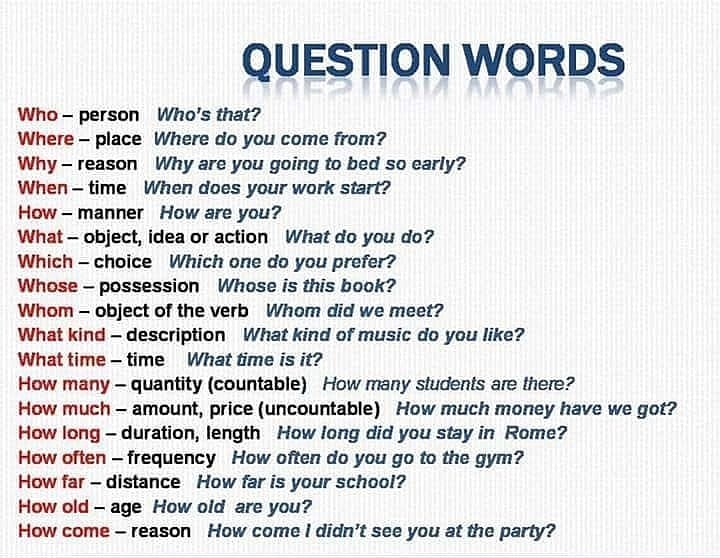
8. Find time every day to relax: take a bath, meditate, go for a massage, sit quietly with a book. Alcohol in this sense is a bad option for relaxation: you get tired every day, but you can’t drink every day.
9. Find opportunities to be alone.
10. Take care of yourself: you need to take care of yourself in the same way as you take care of your loved ones.
how to survive for people who feel everything
It is common to think that excessive emotional reactions are something to be dealt with, as they destroy relationships, provoke conflicts and become the cause of many other rash acts. However, the author of the book “I've had enough! How to live with emotional sensitivity ”Imi Lo thinks completely differently and says that people who live in the world of feelings and perceive everything around them through them can actually see and feel what others cannot see. To do this, you need to accept your high sensitivity and realize that this is not a weakness, but, on the contrary, a strength.
 We tell you who emotionally sensitive people are and what advantages they have.
We tell you who emotionally sensitive people are and what advantages they have.
Imi Lo
Mann, Ivanov and Ferber, 2020
Who are emotionally sensitive people
An emotionally sensitive person in the most general sense is a person who has a greater range of emotions than anyone else, and perceives the world and the events taking place in it sharp, bright and sensual. There are five signs of emotional sensitivity:
-
Depth, intensity and complexity of emotions.
-
Increased empathy and sensitivity
-
High level of susceptibility.
-
Rich inner world filled with feelings and vivid imagination.
-
Creativity and existential anxiety.
These signs can determine whether you belong to the category of emotionally sensitive people.
Depth, intensity and complexity of emotions
If you are a person with high emotional sensitivity, it is as if you exist in the world of emotions and do not think of yourself beyond it.![]() You perceive any events acutely, and you feel truly alive only when you feel something. At the same time, emotions can be not only bright, but also changeable: here you are at the peak of euphoria, and the next second you experience deep sadness.
You perceive any events acutely, and you feel truly alive only when you feel something. At the same time, emotions can be not only bright, but also changeable: here you are at the peak of euphoria, and the next second you experience deep sadness.
You may be passionate about anything and can love strongly, grandiosely and without reserve, so you strive to create strong bonds with people, things and places, which makes it difficult to say goodbye to them, even if it is necessary.
Increased empathy and sensitivity
Probably from an early age you were interested in the lives of others, you were worried even about people who had nothing to do with you. You may also feel a stronger connection with animals and nature, the other person's inner world and their physical sensations. Surely it will not be difficult for you to understand what your interlocutor feels and why he feels this way - and you feel it so clearly that sometimes other people's experiences are perceived as your own.
You tend to be empathic with people, and in close relationships you can romanticize and idealize your friend or partner, forgiving him many shortcomings simply because you deeply feel his inner world. Moreover, some highly sensitive people have a low pain threshold, suffer from misophonia (intolerance to certain sounds), hyperacusis (sensitivity to certain frequencies and strengths of sound), and allergies.
High susceptibility
You do not tend to be satisfied with superficial knowledge, because thanks to empathy and sensuality, you can penetrate the very essence of things, see relationships and important details that many miss. Sometimes you can predict the occurrence of a certain event in advance, understand the state of a person long before he explains it himself, and also recognize true intentions.
True, the ability to foresee something does not always play into your hands, since some images and possible scenarios influence you so strongly that you cannot get rid of obsessive thoughts and emotions.
Storytel is an international subscription audiobook service. The Storytel library contains audiobooks from almost all genres, from classics and non-fiction to lectures, stand-ups and podcasts. This is a service that solves the problem of reading. It lets you listen to audiobooks anytime, anywhere: while exercising, preparing meals, commuting to and from work, on the plane, before bed, and whenever you want. Storytel creates and records its own unique content - lecture projects, podcasts, audio series, and also collaborates with the best voices in the country.
A rich inner world and vivid imagination
A wide range of emotions gives rise to various images and associations that can be combined into metaphors, ideas, fantasies and entire worlds. You are probably very inquisitive, prone to constant reflection and searching for answers to questions, therefore you are attentive to the information that you study and to the people with whom you communicate. You may suffer from perfectionism, prone to excessive self-criticism.
When you read a book, watch a movie or a theatrical performance, then most likely the rest of the world ceases to exist for you - now there is only a fictional universe that you sensually explore and to which you vividly react.
Creativity and an existential crisis
Through insight, you may have often thought about the meaninglessness of existence, experienced fear of loneliness, and also annoyance that other people do not want to think about what is really important .
You often get hung up on thoughts about the transience of time and the finiteness of everything that exists, because of this you try to use every moment of life to the maximum, reach creative and career heights. Perhaps you have several hobbies, and you are absolutely not satisfied with the idea of a meaningless life without any goals, aspirations and global desires.
Problems of highly sensitive people
A person who perceives the world vividly through feelings is often considered an emotionally immature person, since his reactions to various events seem excessive and inadequate to the situation. This really happens - for example, when it is necessary to resolve a conflict, and instead a person who is overwhelmed by emotions swears even more and does not want to find a way out of the situation.
This really happens - for example, when it is necessary to resolve a conflict, and instead a person who is overwhelmed by emotions swears even more and does not want to find a way out of the situation.
But why is this happening? By and large, only because until the end of the 20th century, IQ was the only indicator of intelligence and giftedness. However, this coefficient took into account only the abilities of the mind, but did not at all reflect the ability of a person to perceive the world differently - through empathy, the ability to take the place of another, feel the mood of the interlocutor, see his intentions and potential hidden from the eyes of others. Therefore, in society, it was intelligence, analytical and linguistic abilities that became important, and not emotions and creativity.
It was only in the 1980s that scientists began to develop new models of giftedness, and this is how emotional intelligence appeared. Canadian psychologist François Gagne was the first to separate the concepts of giftedness and talent in his book The Differential Model of Giftedness and Talent. In his opinion, talent is something that develops over time through training and education, and giftedness is an innate ability, a predisposition to a certain activity. He divided abilities into five categories: intellectual, creative, socio-emotional, sensorimotor and others (psychic abilities are included here, but there may be many questions about them). Only along with this division came the understanding that giftedness is not only intellectual, and a person who does not have sufficient analytical abilities should not be considered stupid or mediocre.
In his opinion, talent is something that develops over time through training and education, and giftedness is an innate ability, a predisposition to a certain activity. He divided abilities into five categories: intellectual, creative, socio-emotional, sensorimotor and others (psychic abilities are included here, but there may be many questions about them). Only along with this division came the understanding that giftedness is not only intellectual, and a person who does not have sufficient analytical abilities should not be considered stupid or mediocre.
Around the same time as Gagne, the American psychologist Howard Gardner developed the concept of multiple intelligences, which included, for example, social intelligence - how we build relationships with others - and intrapersonal intelligence - how we perceive ourselves and how inclined to self-reflection.
Despite all the achievements in the field of psychology and the active popularization of emotional intelligence, not every person realizes how important emotions are. It is customary to develop intellect in children, but no one tells them how to perceive the world through the "wisdom of the heart." That is why especially sensitive, gifted children do not receive proper support, stop showing their emotions and, as a result, face a huge number of problems in adult life that result in conflicts, impulsive decisions and the inability to understand themselves and others.
It is customary to develop intellect in children, but no one tells them how to perceive the world through the "wisdom of the heart." That is why especially sensitive, gifted children do not receive proper support, stop showing their emotions and, as a result, face a huge number of problems in adult life that result in conflicts, impulsive decisions and the inability to understand themselves and others.
Storytel is an international subscription audiobook service. The Storytel library contains audiobooks from almost all genres, from classics and non-fiction to lectures, stand-ups and podcasts. This is a service that solves the problem of reading. It lets you listen to audiobooks anytime, anywhere: while exercising, preparing meals, commuting to and from work, on the plane, before bed, and whenever you want. Storytel creates and records its own unique content - lecture projects, podcasts, audio series, and also collaborates with the best voices in the country.
How to deal with it
Truth Time Exercise
If you realize that you are experiencing a lot of emotions and cannot manage them, you are very likely to be trapped in prejudices, old traumas and beliefs that do not allow you to realize all your potential. The purpose of the exercise is to refer to unpleasant past events—for example, family experiences or embarrassing situations in society, among friends, or at work—in which you came to the conclusion that your emotions are wrong, and to understand why you think that sensitivity only bothers you. Here's what you need to do:
The purpose of the exercise is to refer to unpleasant past events—for example, family experiences or embarrassing situations in society, among friends, or at work—in which you came to the conclusion that your emotions are wrong, and to understand why you think that sensitivity only bothers you. Here's what you need to do:
-
Take a diary and remember as many painful events from the past as possible. Do you have a tendency to minimize negative feelings? Or, for example, try to separate from your experiences, as if you do not want them to be yours?
-
Be honest with yourself and remember your childhood. How did your parents react to your sensitivity? Did they support her or, on the contrary, tried to suppress her? Did you receive support when you were sad, and if so, from whom? Could you experience your emotions with loved ones, or did you have to do it alone?
-
As you remember, pay attention to how your body reacts. Does your heart rate increase when you think about certain situations? Maybe your jaw or shoulders are tense? Emotions tend to show up outwardly, so pay attention to your body's signals.

In the process of this exercise, if you dig deep, it may become clear why you cannot accept and acknowledge your high sensitivity and, as a result, make it work for you.
Feel the events of the past
Some traumas from early childhood or just in the past can still cause negative feelings in us, such as sadness, anger, sadness or disappointment. It's okay to experience them, but if the events still seem painful, then you haven't let them go yet. So allow yourself to relive all the emotions, even though it may be unpleasant.
Think of all situations that make you feel sad, toxic envy, anger, or any other negative emotion. Try to feel it all over again, allow yourself to react exactly as you would react if you didn’t forbid yourself to freely express your feelings, even the most unpleasant and negative ones. As in the previous exercise, pay attention to the reaction of the body: is there a lump in your throat, are your cheekbones tense, do you feel like crying? And if so, then allow yourself to feel it all. Re-living emotions is like a way of healing and clearing out what has been bothering you for a long time. When you fully experience everything, it will be easier for you to let go of events and move on.
Re-living emotions is like a way of healing and clearing out what has been bothering you for a long time. When you fully experience everything, it will be easier for you to let go of events and move on.
Exercise "Mental rehearsal"
When we are nervous, anticipating not the most pleasant or just exciting event, we begin to activate our defense mechanisms in advance so that the situation does not turn into a disaster for us. However, by winding ourselves up, we only make things worse, while the event may well turn out to be not as terrible as it seemed at first. To avoid wrong reactions, do the following:
-
Imagine an event that triggers your anxiety. Consider it in detail, but not from the point of view of a passive observer, but as an active participant.
-
Imagine all the possible scenarios in which this event could develop. Will people say things that will make you sad? Or maybe pissed off? Imagine everything that can provoke a strong emotional reaction in you - from the smallest troubles to the biggest.


